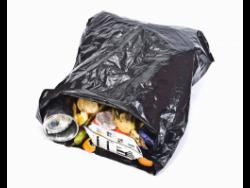The National Environment and Planning Agency (NEPA) will join the global community in commemorating International Plastic Bag-Free Day on Thursday, with a youth-focused outreach initiative aimed at promoting sustainable alternatives to single-use plastics.
As part of its public education efforts, representatives of NEPA will visit the Annie Dawson Home for Children in Kingston, where children will participate in a creative no-sew workshop – transforming old T-shirts into reusable cloth bags. The session will also include discussions on the environmental harm caused by single-use plastic bags and the critical need for sustainable alternatives.
Environmental Management Systems Officer in NEPA’s Pollution Prevention Branch, Johnil Morgan, told JIS News that International Plastic Bag-Free Day is “a vital opportunity to increase public awareness of the harmful effects of plastics on the environment and promote alternatives that are reusable and environmentally friendly”. Morgan added that Jamaica’s efforts to reduce single-use plastic waste are guided by the Plastic Packaging Materials Prohibition Order, the latest iteration of which came into effect in 2024. The order now prohibits a wide range of single-use plastic items, including plastic bags measuring 24×24 inches with a thickness of 2.5 millimetres or more, plastic drinking straws made from polyethylene or polypropylene, and expanded polystyrene foam used in food containers, commonly referred to as Styrofoam. The next phase of the plastic ban, targeting cosmetic products containing microplastics, is scheduled to take effect on July 1.
Despite notable progress, enforcement of the plastic ban remains an ongoing challenge.
“NEPA has received reports of continued use of banned plastic items, particularly in downtown markets. In response, NEPA and its partners will be rolling out another round of public education and enforcement campaigns to raise awareness and ensure compliance,” Morgan shared.
The agency encourages all Jamaicans to take personal responsibility for reducing plastic waste. Citizens are also urged to refuse single-use plastics where possible, embrace reusable alternatives such as cloth and paper bags, recycle appropriately, and get involved in local clean-up efforts.
“[Importantly] the public is reminded that the Plastic Packaging Prohibition Order, 2024, applies to single-use plastic bags regardless of whether they are labelled degradable, biodegradable, oxo-degradable, photodegradable, or compostable. If a bag meets the restricted size and thickness criteria, it is banned,” Morgan emphasised. Violators may face fines of up to $50,000 or imprisonment for up to two years under the orders.
